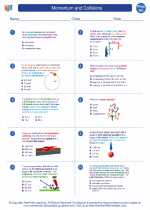Genetic Disorders
Genetic disorders are conditions that are caused by abnormalities in an individual's genetic material. These abnormalities can be inherited from parents or can be the result of spontaneous mutations. Genetic disorders can affect any aspect of the body's development and function, and can range from mild to severe in terms of their impact on an individual's health.
Types of Genetic Disorders:
- Chromosomal Disorders: These disorders result from abnormalities in the number or structure of chromosomes. Examples include Down syndrome and Turner syndrome.
- Single-Gene Disorders: These disorders are caused by mutations in a single gene. Examples include cystic fibrosis, sickle cell anemia, and Huntington's disease.
- Multifactorial Disorders: These disorders are caused by a combination of genetic and environmental factors. Examples include diabetes, heart disease, and certain types of cancer.
- Mitochondrial Disorders: These disorders result from mutations in the DNA of mitochondria, the energy-producing structures within cells. Examples include Leigh syndrome and Leber's hereditary optic neuropathy.
Causes of Genetic Disorders:
Genetic disorders can be caused by a variety of factors, including:
- Gene mutations
- Chromosomal abnormalities
- Inherited genetic mutations from parents
- Exposure to environmental factors such as radiation, chemicals, and viruses
- Advanced maternal age
Diagnosis and Treatment:
Genetic disorders can be diagnosed through various methods, including genetic testing, family history analysis, and prenatal testing. Treatment for genetic disorders varies depending on the specific condition, and may include medications, surgery, gene therapy, and supportive care.
Study Guide:
To study genetic disorders effectively, consider the following key points:
- Understand the different types of genetic disorders and their causes.
- Explore the mechanisms of inheritance and the role of genetics in human health.
- Learn about the methods used for diagnosing genetic disorders, including genetic testing and family history analysis.
- Examine the current treatments available for various genetic disorders and the potential for future therapies, such as gene editing and gene therapy.
- Consider the ethical and social implications of genetic testing and genetic engineering.
By mastering these concepts, you'll develop a thorough understanding of genetic disorders and their impact on individuals and society.
[Genetic Disorders] Related Worksheets and Study Guides:
.◂Physics Worksheets and Study Guides High School. Momentum and Collisions

 Worksheet/Answer key
Worksheet/Answer key
 Worksheet/Answer key
Worksheet/Answer key
